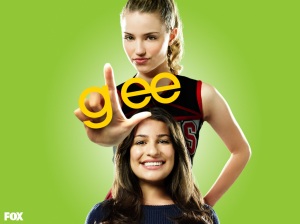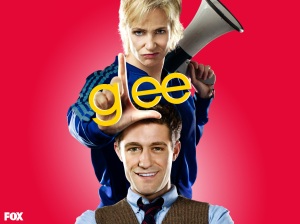As much as I’ve loved super-hero comics, I’ve never really enjoyed super-hero cartoons. (Don’t even get me started on super-hero movies. I haven’t liked one since the second Tim Burton Batman movie.) The cartoons tended to seem overly simplified and overblown to me. They either didn’t have any character continuity at all, which made them suffer in comparison to the ongoing comics, or they handled it so baldly that I felt like I was getting a history lesson.
 It’s been a while since I’ve read super-hero comics regularly, mostly because they’ve become mope-y and insular beyond even my ability to tolerate. I do have a super-hero cartoon that I love, love, love. It’s The Avengers: Earth’s Mightiest Heroes, which airs on Disney XD (though I’ve been catching up on it on Netflix). Here are some of the reasons why I’m so smitten:
It’s been a while since I’ve read super-hero comics regularly, mostly because they’ve become mope-y and insular beyond even my ability to tolerate. I do have a super-hero cartoon that I love, love, love. It’s The Avengers: Earth’s Mightiest Heroes, which airs on Disney XD (though I’ve been catching up on it on Netflix). Here are some of the reasons why I’m so smitten:
- The episodes can be very funny. Part of the fun of the comics is the banter and bickering among the heroes, and writer Christopher Yost does a great job with that. The banter is character-driven rather than writer-specific. The Hulk is a riot. I always thought that character’s addition into the Avengers’ comics canon was a mistake that was hastily and appropriately rectified. He just didn’t work as a part of a team, what with his portrayal elsewhere in Marvel’s shared universe. Here, there’s no other portrayal to consider, so he can be cranky and troublesome, but you still believe he wants to do good with this group. He’s smart in an instinctive way, and he likes to needle people, which yields some great lines. There are also some fun, subtle jokes. I thought it was terrific that the Avengers ended up fighting an alien robot in a drive-in movie theatre, since the tone of the episode was very much in keeping with the kind of creature flicks that ran there.
- The episodes that I’ve watched (about half of the first season) are very exciting. The Avengers face big stakes – massive prison break-outs, the Masters of Evil, alien invasion, a takeover by gamma monsters, etc. Even more importantly, those stakes tend to be external to the fact that the Avengers exist. (At a certain point with any super-hero property, a lot of what they do consists of reacting to villains who want revenge.)
- There’s a good division of attention among the characters. Someone clearly cares enough to track the way the characters interact and to make sure everyone gets time in the spotlight. There’s a consistent team dynamic that consists of specific individual relationships, which is something the comics don’t manage all of the time, so the show certainly gets extra points for that. And nobody gets marginalized because of power levels: Thor and Hulk are the best at hitting things, but everyone believably brings something to the table – Hawkeye’s skill, Wasp’s energy and speed, and so on.
 The gang’s all here. Aside from the horde of villains that crash in and out of the narrative, there are tongs of supporting characters to add spice. You can’t seem to do an adaptation without Nick Fury lurking on the periphery, obviously, but it’s nice to see Jane Foster driving an ambulance, Pepper Potts rolling her eyes at Iron Man, Doc Samson helping out with gamma-related issues, and so on.
The gang’s all here. Aside from the horde of villains that crash in and out of the narrative, there are tongs of supporting characters to add spice. You can’t seem to do an adaptation without Nick Fury lurking on the periphery, obviously, but it’s nice to see Jane Foster driving an ambulance, Pepper Potts rolling her eyes at Iron Man, Doc Samson helping out with gamma-related issues, and so on.- There’s good subplot management. The act of teasing to the next big thing while in the midst of the current big thing was always essential to my enjoyment of super-hero comics. That element is very much in place here. Yost is very good at suggesting the current adventure is part of a larger threat, adding a level of excitement and interest.
Now, the series isn’t perfect. The team’s roster needs more women. Wasp is a terrific character, an enthusiastic adventurer who holds her own rather than the dingbat girlfriend she was for so long in the comics. But, as much fun as it is to see the closing team shot at the end of the credits, it’s always sad to see Wasp doing solo duty when it comes to representing women. This might be rectified; Carol Danvers has appeared and taken steps toward her super-hero destiny. In the episodes I’ve watched, the Black Widow has played a significant (though morally ambiguous) role, and Mockingbird made a great impression as a SHIELD agent. But I want to see another super-heroine in the credits, if not more than one.
Also, the theme song is kind of terrible. Rhyming “one” with “won” always grates on my nerves; some couplings only work in print. And yes, that’s picky of me, but I’m a Sondheim devotee, so my expectations of lyrics are very high.
But if you’re like me, and have fond memories of when super-hero adventures were fun to follow, then you really should give this series a try. It’s terrific.



